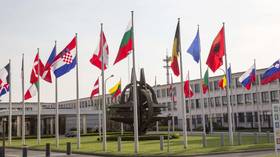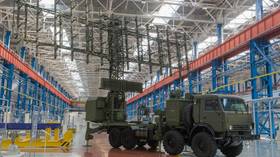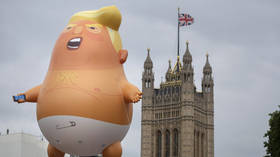Russian scientists create artificial ‘human skin’ that becomes STRONGER when stretched

A Russian-led team of scientists has created a synthetic stand-in for human skin that overcomes many of the stumbling blocks faced in recreating living tissues by being both soft and firm and getting stronger when stretched.
The researchers from Moscow State University, along with colleagues in the United States, spent years developing the clever material, which is even capable of self-assembly.
The skin, which consists of molecular fibers which are grafted onto the long part of the molecule, is very elastic but if it is stretched, twisted or bent out of shape in other ways it gets stronger very quickly.
Also on rt.com ‘Neither robot nor animal’: Scientists develop the ‘Xenobots,’ 1st robots constructed completely from LIVING CELLS (VIDEO)Scientists looking to recreate human skin for robotics, wearable electronics and plastic surgery have had little success trying to create something that can be both soft and firm. The difficulty of overcoming the contrasting goals has been particularly pronounced with tissues such as fat, which is both ultra-soft and ultra-firm.
However, the boffins, led by Professor Dmitry Ivanov, solved the seemingly intractable problem with their novel hybrid material which can replicate the mechanics of fat, fetal membrane, spinal cord and even brain tissue.
“The skin has unique properties – it is both soft and elastic when in contact,” explained Professor Ivanov. “However, when stretched, it sharply hardens – it is possible to violate the integrity of the skin only by a very strong mechanical effect.”
The research was published in the American Chemical Society’s Central Science journal and the team is now preparing for the next stage in their development of artificial skin.
Like this story? Share it with a friend!














